
Penguin Random House sues Florida school district over ‘unconstitutional’ book bans
A school district and school board in Florida’s Escambia County were sued in federal court by free expression group PEN America and Penguin Random House, one of the largest book publishers in the world, and several prominent authors and families following dozens of challenges to books and materials discussing race, racism and LGBT+ people. The lawsuit filed in US District Court on 17 May argues that school officials have joined an “ideologically driven campaign to push certain ideas out of schools” and against the recommendation of experts. “This disregard for professional guidance underscores that the agendas underlying the removals are ideological and political, not pedagogical,” the lawsuit states. Florida Governor Ron DeSantis has ushered through sweeping laws to control public school education and lessons and speech he deems to be objectionable while characterising reporting on the impacts of such policies as a “hoax” and a “fake narrative” manufactured by the press. In Escambia County alone, nearly 200 books have been challenged, at least 10 books have been removed by the school board, five books were removed by district committees, and 139 books require parental permission, according to PEN America. Challenging such materials is “depriving students of access to a wide range of viewpoints, and depriving the authors of the removed and restricted books of the opportunity to engage with readers and disseminate their ideas to their intended audiences” in violation of the First Amendment, according to the lawsuit. The lawsuit also argues that singling out materials by and about nonwhite and LGBT+ people is an intentional violation of the Equal Protection Clause of the 14th Amendment “This is no accident,” according to the lawsuit. “The clear agenda behind the campaign to remove the books is to categorically remove all discussion of racial discrimination or [LGBT+] issues from public school libraries. Government action may not be premised on such discriminatory motivations.” Two Penguin Random House Titles – Toni Morrison’s The Bluest Eye and Push by Sapphire – have been removed. And several other Penguin titles – including Khaled Hosseini’s The Kite Runner and Kurt Vonnegut’s Slaughterhouse-Five – are currently under review. “Books have the capacity to change lives for the better, and students in particular deserve equitable access to a wide range of perspectives,” Penguin Random House CEO Nihar Malaviya said in a statement. “Censorship, in the form of book bans like those enacted by Escambia County, are a direct threat to democracy and our Constitutional rights.” Suzanne Nossel, CEO of PEN America, added that “children in a democracy must not be taught that books are dangerous.” “In Escambia County, state censors are spiriting books off shelves in a deliberate attempt to suppress diverse voices,” she added. “In a nation built on free speech, this cannot stand. The law demands that the Escambia County School District put removed or restricted books back on library shelves where they belong.” Titles from authors who joined the suit – including Sarah Brannen, David Levithan, George M Johnson, Ashley Hope Perez and Kyle Lukoff – have either been removed or faced restrictions for students to access them. “As a former public high school English teacher, I know firsthand how important libraries are,” Ashley Hope Perez, author of Out of Darkness, one of the books targeted by the school district, said in a statement. “For many young people, if a book isn’t in their school library, it might as well not exist.” The book removals followed objections from one language arts teacher in the county, and in each case the school board voted to remove the books despite recommendations from a district review committee that approved them. The teacher’s objections appear to be lifted from a website called Book Looks, founded by a member of Moms for Liberty, a right-wing group aligned with Governor DeSantis to pressure school boards and libraries to remove content it deems objectionable, largely around LGBT+ rights, race and discrimination. The basis for that teacher’s challenges “are nakedly ideological,” according to the lawsuit. In one instance, she admitted that she had never heard of the book The Perks of Being a Wallflower but included the title and a “parental book rating” and excerpts that appear to have been lifted from Book Looks. Her challenge to Race and Policing in Modern America, a nonfiction book for middle school readers, claims that the book promotes “the idea that all police are bad” and that “non-blacks are racist” and its purpose is to “race bait”. She did not include any specific examples of objectionable content, and “her sole objection was that the book addresses a topic – the intersection of race and policing – that she did not consider suitable for discussion in schools.” The Independent has requested comment from Escambia County school board members. The district is unable to comment on pending litigation. There have been at least 1,477 attempts to ban 874 individual book titles within the first half of the 2022-2023 school year, according to PEN America. The figures mark a nearly 30 per cent spike from book challenges over the previous year. Last year, a record high of more than 1,200 attempts to remove books from schools and libraries were reported to the American Library Association. More than 100 bills in state legislatures across the country this year threaten to cut library budgets, implement book rating systems, regulate the kinds of books and materials in their collections, and amend obscenity definitions that preempt First Amendment protections, according to a database from EveryLibrary. Read More The book ban surge gripping America’s schools and libraries The school librarian in the middle of Louisiana’s war on libraries ‘They were trying to erase us’: Inside a Texas town’s chilling effort to ban LGBT+ books John Green on book bans, bad faith, and the ‘history of folks trying to control what other folks can read’
1970-01-01 08:00
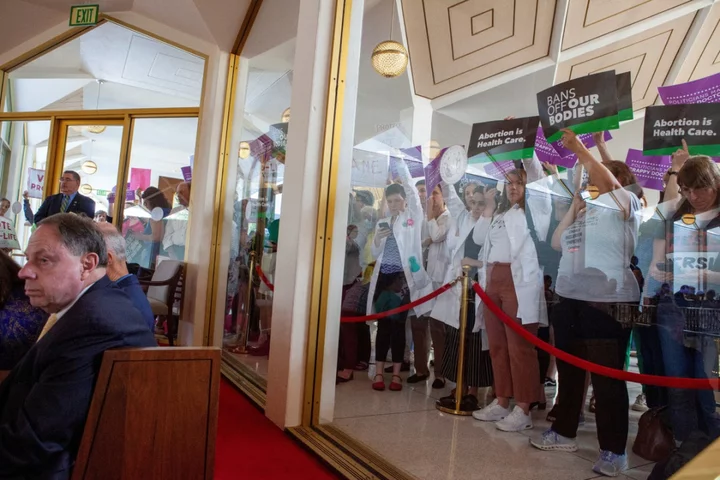
North Carolina Republicans approve 12-week abortion ban as sweeping restrictions spread across US South
Republican lawmakers in North Carolina voted to override the governor’s veto of a bill that outlaws abortion at 12 weeks of pregnancy, restricting abortion access in a state that has been a haven for abortion care in the year after the US Supreme Court’s decision to reverse Roe v Wade. In neighbouring South Carolina, lawmakers have continued debate before voting on a more-restrictive measure that would ban nearly all abortions after roughly six weeks of pregnancy, before many people know they are pregnant, adding to a streak of abortion restrictions across the US South. More than a dozen states, mostly in the South, have outlawed most abortions or severely restricted access within the year after the Supreme Court’s ruling in Dobbs v Jackson Women’s Health Organization, which revoked a constitutional right to abortion care that was affirmed for nearly half a century. Abortion rights restrictions in North Carolina and a six-week ban in South Carolina would dramatically change the map for abortion access in the US, where abortions are banned in most cases from Texas to West Virginia and along the Gulf Coast. “In the more than a dozen states with bans, women have been turned away from emergency rooms, left with no choice but to travel hundreds of miles for the care they need, and faced complications that put their lives and health at risk. Like those laws, the North Carolina ban will harm patients and threaten doctors for providing essential care,” White House press secretary Karine Jean-Pierre said in a statement on 17 May. She called the North Carolina measure a “dangerous bill that is out of touch with the majority of North Carolinians and will make it even more difficult for women to get the reproductive health care they need.” “We’ve already seen the devastating impacts that state abortion bans have had on the health and lives of Americans living under these draconian laws,” she added. Health workers joined protesters at the North Carolina Capitol in Raleigh on 17 May as lawmakers in the Republican-controlled state legislature convened to override a veto from Democratic Governor Roy Cooper, who has spent the last several days campaigning for GOP lawmakers to break from the party and drop the challenge to his veto. In a video posted online, the governor named four Republican lawmakers who he said made campaign promises to protect access to abortion. “They say this is a reasonable 12-week ban. It’s not,” he said in the video. “The fine print requirements and restrictions will shut down clinics and make abortion completely unavailable to many women at any time, causing desperation and death.” Much of the coverage surrounding the North Carolina legislation has centred around a now-Republican lawmaker who previously campaigned against abortion restrictions when she was a Democrat, up until April. State Rep Tricia Cotham joined the Republican Party last month after campaigning for her seat as a Democratic candidate and earning the endorsement of EMILY’s List, an influential abortion rights organisation. Her party switch delivered Republicans a veto-proof majority in the House. Ms Cotham has spent years campaigning against abortion restrictions, with powerful testimony about abortion rights and her own medically necessary abortion experience, saying in one widely shared 2015 speech that “my womb and my uterus is not up for your political grab.” In a statement following the vote, the governor said that “North Carolinians now understand that Republicans are unified in their assault on women’s reproductive freedom, and we are energized to fight back on this and other critical issues facing our state.” Lawmakers in the House and Senate voted on party lines to reverse the governor’s veto. The bill includes exceptions for pregnancies from rape or incest or if there is a “life-limiting anomaly” in the fetus. It also will require in-person physician visits at least 72 hours before a procedural abortion, and doctors must also make real-time views of fetuses available and allow patients to listen to embryonic cardiac activity. North Carolina lawmakers approved the anti-abortion law while lawmakers in Nebraska debated a measure that coupled a 10-week abortion ban with a bill targeting gender-affirming care for trans youth, a proposal that inspired a nearly three-month-long filibuster in an effort to block it. Republican lawmakers ultimately broke through the filibuster on Tuesday night and voted in favour of the combined bill, which will head to a final round of votes before it heads to the desk of Republican Governor Jim Pillen, who intends to sign it into law. Meanwhile, in Louisiana, lawmakers recently refused to add rape and incest exceptions to its anti-abortion law, one of the most restrictive in the country. State lawmakers also overwhelmingly rejected attempts to clarify medical exceptions in the law, including a measure that would specifically allow providers to remove an ectopic or molar pregnancy, which cannot result in a successful birth. Read More Nebraska Republicans approve combined gender-affirming care ban and anti-abortion bill after epic filibuster Anti-abortion laws harm patients facing dangerous and life-threatening complications, report finds
1970-01-01 08:00

Trump lawyer exits legal team as Mar-a-Lago classified documents probe heats up
Former president Donald Trump’s attorney Timothy Parlatore is leaving the former president’s legal team, CNN reported on Wednesday. Mr Parlatore played a key role in the investigation into Mr Trump keeping classified documents at his private Mar-a-Lago estate, and Mr Parlatore even testified before the grand jury in the case. The departure comes as Special Counsel Jack Smith reaches the end of his investigation into Mr Trump’s possible mishandling of classified documents. “It’s been an incredible honor to serve and work through interesting legal issues. My departure was a personal choice and does not reflect upon the case, as I believe strongly the (Justice Department) team is engaging in misconduct to pursue an investigation of conduct that is not criminal,” Mr Palatore told CNN in a statement. Mr Parlatore also organised searches for additional classified documents at Trump Tower as well as other Trump properties, including a storage unit. He also testified before a grand jury in December when the Justice Department sought to hold Mr Trump in contempt for failing to hand over classified documents after he received a subpoena. “They repeatedly tried to ask me about my conversations with President Trump, which is totally outside the scope of what I was there for,” he said in March. Mr Parlatore also recently sent a letter to House Intelligence Committee Chairman Mike Turner that asked the Justice Department to step aside and instead let the intelligence community determine what happened with the documents. The departure comes as Mr Trump faces multiple investigations on the federal and local levels. Last month, he was arraigned in Manhattan for charges related to alleged hush money payments. The Fulton County, Georgia, district attorney is also investigating Mr Trump’s attempts to overturn the 2020 presidential election results in the Peach State. Similarly, along with the documents, Mr Smith is investigating Mr Trump’s attempts to overturn the 2020 presidential election results and his actions on January 6. Read More Trump news – live: John Durham’s report on Trump-Russia probe attacks FBI as Giuliani accused of sexual abuse DeSantis reacts to Trump implying Florida abortion ban is ‘too harsh’ as 2024 fight heats up
1970-01-01 08:00
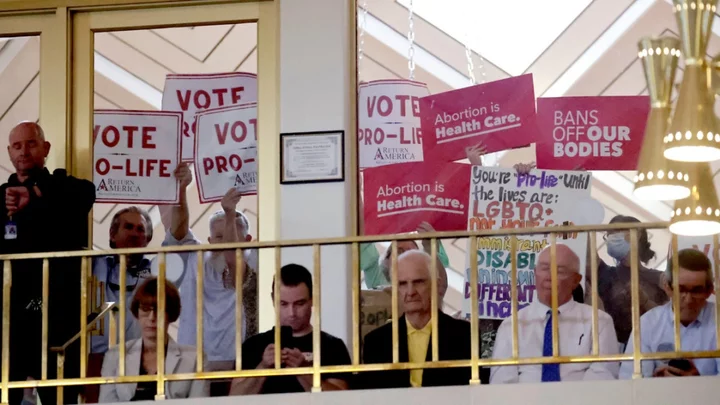
Key abortion debates this week in US courts and statehouses
Abortion opponents are trying again to implement restrictions in the latest round of court and legislative action on the divisive issue. This round of efforts centers on states that have considered bans before and a policy that's been bouncing around federal courts. Here are key things to know about the latest developments in the saga of how abortion policy will settle after the U.S. Supreme Court last year overturned Roe v. Wade and the nationwide right to abortion. PURPLE STATE POLICY Since the Dobbs ruling last year, tighter abortion restrictions have been enacted in most Republican-controlled states and protections of abortion access have gone into effect in most that are dominated by Democrats. But there hasn't been such a uniform story in the 11 states with divided government control. Virginia has kept its status quo, for instance, while Vermont has adopted a constitutional amendment to preserve abortion access and Louisiana and Kentucky have bans in place. Change came quickly in North Carolina in April when one state lawmaker flipped from Democrat to Republican, giving the GOP enough votes to override gubernatorial vetoes. Lawmakers promptly passed a ban that's less restrictive than most — allowing abortion for the first 12 weeks of pregnancy, which would be among the least restrictive of the new bans. Democratic Gov. Roy Cooper vetoed it. But lawmakers on Tuesday overrode that veto and the new law is set to take effect July 1. TRYING AGAIN ON BANS IN NEBRASKA, SOUTH CAROLINA Nebraska and South Carolina are both Republican-dominated states where GOP lawmakers have struggled to agree on the details of abortion bans. Both are considering bans this week, just weeks after earlier efforts narrowly fell short on procedural votes. And both have resurrected legislation that's less restrictive than versions that were rejected previously. In South Carolina, Republican lawmakers were divided on whether to ban abortion at all stages of pregnancy or only after cardiac activity can be detected — generally around six weeks, often before women know they're pregnant. A version of a less stringent ban is now under consideration. In Nebraska, lawmakers balked at a ban after six weeks. The unique unicameral legislature is now considering a ban on abortion at 12 weeks' gestation. It's been added to a bill that would also ban gender-affirming care for minors. RESTRICTION IN MONTANA In Montana, Gov. Greg Gianforte signed a ban Tuesday on dilation and evacuation abortions, which are normally performed in the second trimester of pregnancy. A legal challenge is expected. And it wouldn't be the first challenge on the policy in the state. A judge ruled last month that she would not block the ban preemptively, before it was signed into law. The state in 2021 adopted a broader ban on abortions after 20 weeks of pregnancy, but the state Supreme Court ruled that it will not enforce it pending a court challenge, leaving abortions by some means legal until viability, around the 24th week. COURT ARGUMENTS ON AN ABORTION PILL Most of the legal battles on abortion since the Supreme Court’s Dobbs decision in 2022 have centered on whether individual state constitutions protect the right to abortion. But one has implications nationally. An anti-abortion group sued seeking to rescind the U.S. Food and Drug Administration’s 2000 approval of mifepristone, one of two drugs used in combination in most medication-induced abortions in the U.S. A federal judge in Texas agreed. The New Orleans-based 5th U.S. Circuit Court of Appeals is hearing arguments Wednesday on the matter. In the meantime, the U.S. Supreme Court has said that mifepristone can remain on the market. It is already barred from being used in abortions, with some exceptions, in states with bans in place. An immediate response from the circuit court is unlikely. The case is expected to return to the nation’s top court eventually. The Texas-based case could be merged with one in Washington, where another federal judge ruled last month that mifepristone restrictions cannot be rolled back in a group of Democrat-led states that filed lawsuits. Read More Ukraine war’s heaviest fight rages in east - follow live Charity boss speaks out over ‘traumatic’ encounter with royal aide Arab foreign ministers welcome Syria's return to the Arab League ahead of Jeddah summit Hamas calls on Palestinians to confront Israeli victory parade in Jerusalem Tiny Amerindian village in Guyana fights gold mine in key court battle over indigenous land rights
1970-01-01 08:00

Trump takes credit for overturning of Roe v Wade while raising questions about DeSantis’ six-week ban
Former president Donald Trump is taking credit for the US Supreme Court overturning Roe v Wade last year by claiming he nominated the justices who did not agree with the 1973 precedent. On Tuesday night’s episode of Rob Schmitt Tonight on Newsmax, Mr Trump compared his action against abortion to Florida Governor Ron DeSantis’, saying he has done more for pro-life people. “First of all, I’m the one that got rid of Roe v. Wade and everybody said that was an impossible thing to do,” Mr Trump boasted. Mr DeSantis recently signed into law a six-week ban that prevents anyone from seeking an abortion after six weeks of gestation, with the exception of cases where ending a pregnancy would save the mother’s life. As of now, Florida allows abortions for pregnancies involving rape or incept until 15 weeks of gestation, so long as the mother can provide documentation such as a restraining order or police report. But despite Florida’s harsh move to restrict abortion access, Mr Trump believes he should be receiving more credit for the work he’s done. “What I’ve done is given the pro-life people, who are wonderful people and loving people, I’ve given them the power of negotiation. Because now they’re able to negotiate something that is going to be very important,” Mr Trump said. During his presidential term, Mr Trump nominated three Justices to the Supreme Court - Neil Gorsuch, Brett Kavanaugh and Amy Coney Barrett. All three Justices joined the majority opinion of Dobbs v Jackson last summer to help overturn Roe v Wade as well as Planned Parenthood v Casey. This returned the legality of abortions to each state individually. As of May 2023, 19 states have banned abortions either fully or restricted until a certain week of gestation, including Florida. “DeSantis, or Ron Desanctimonious as I call him, he came out with the six weeks — other people agree with and a lot of people don’t,” Mr Trump said. The former president used Mr DeSantis’ recent ban to highlight how unpopular he is with female voters — indicating the ban is too restrictive. “Ron, if you take a look, he’s losing women voters like crazy,” Mr Trump said before citing several news stories about Mr DeSantis’ unpopularity with women. The former president has been comparing himself positively to Mr DeSantis in the last few months as rumours are swirling that Mr DeSantis is preparing to announce his bid for Republican presidential candidate. “I don’t do it for the women, for the men, I do what’s right,” Mr Trump added. It is thought that Mr DeSantis could be a leading contender for Republicans, making him a possible threat to Mr Trump’s campaign. As of recently, any opportunity Mr Trump has to criticise Mr DeSantis, he takes it — as evidenced by the Newsmax interview. Mr Trump both credited himself with overturning Roe v Wade while asserting that Mr DeSantis was unpopular with women due to Florida’s six-week ban. Mr Trump has changed his opinion on abortion throughout his life. In the 1990s the former president claimed he was pro-choice but by 2015 he told reporters he was pro-life. In 2016, Mr Trump said he would have “preferred” if abortion were up to the States but accepted the federal law. After implementing the three Justices who overturned Roe v Wade last year, Mr Trump took credit for the decision. But since then, the former president has never made it clear at what point in gestation abortions should be illegal. Read More DeSantis reacts to Trump implying Florida abortion ban is ‘too harsh’ as 2024 fight heats up Abortion after 12 weeks banned in North Carolina after GOP lawmakers override governor’s veto Abortion pill case moves to appeals court, on track for Supreme Court Ivanka and Jared split over attending Trump 2024 launch – follow live Why was Donald Trump impeached twice during his first term? Four big lies Trump told during his 2024 presidential announcement
1970-01-01 08:00
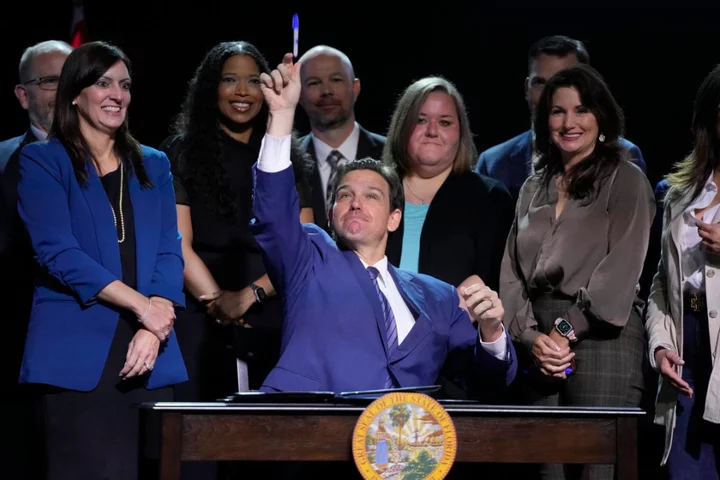
DeSantis reacts to Trump implying Florida abortion ban is ‘too harsh’ as 2024 fight heats up
Gov Ron DeSantis criticised Donald Trump on Tuesday for implying Florida's new six-week abortion ban is “too harsh,” stepping up his attacks on the former president as he prepares to challenge him for the 2024 Republican nomination. Mr DeSantis was responding to a question about Mr Trump's comments in an article published Monday by The Messenger about the six-week ban the Florida governor recently signed into law. “Many people within the pro-life movement feel that that was too harsh,” Trump told the online outlet. Mr DeSantis contended the law has widespread support among opponents of abortion and noted the former president didn't say what limits he would back on the procedure. “Protecting an unborn child when there’s a detectable heartbeat is something that almost 99 per cent of pro-lifers support,” Mr DeSantis said at a news conference in Florida, taking questions after he signed a measure to combat human trafficking. “As a Florida resident, you know, he didn’t give an answer about, ‘Would you have signed the heartbeat bill that Florida did, that had all the exceptions that people talk about?’” Mr DeSantis added. The rivalry between Mr Trump and Mr DeSantis is heating up as the Florida governor nears a decision on a 2024 presidential bid. Mr DeSantis allies believe he will launch his candidacy as soon as this week, although an announcement could come closer to the end of the month. Abortion has been an early flashpoint in the still-forming Republican primary field ahead of the first presidential election since the Supreme Court overturned Roe v Wade. The bickering showcases the GOP's ongoing internal debate over hard-line abortion restrictions, which may be popular in a Republican primary but could create problems in a general election for the party's eventual nominee. The bill signed into law last month by Mr DeSantis would ban abortions after six weeks of pregnancy. It will take effect only if the state’s current 15-week ban is upheld in a legal challenge before the state Supreme Court, which is controlled by conservatives. “Ron DeSantis is flailing in the polls and is closer to the bottom of the pack than he is to President Trump, who is dominating in every single poll,” Trump campaign Steven Cheung said when asked to respond to DeSantis' remarks. Cheung pointed out an anti-abortion group's recent characterization of Trump's presidency as “the most consequential in American history for the pro-life cause.” Mr Trump has referred to himself as “the most pro-life president in American history,” as his three nominations of conservative judges to the Supreme Court paved the way for the end of legalized abortion nationwide. But in the early months of his 2024 bid, Mr Trump has often sidestepped the issue of abortion, even as Republicans across the country celebrate the Supreme Court decision stripping federal constitutional rights to the practice. In Iowa in March, he repeatedly refused to say whether he would support a federal law restricting abortion in every state — a move that anti-abortion activists have been demanding of the GOP’s presidential contenders. “We’re looking at a lot of different things," he said when asked by The Associated Press whether he supports a federal abortion ban. Last week during a primetime CNN town hall in New Hampshire, Mr Trump continued to avoid specifics on a national ban, repeatedly saying he would “do what’s right,” without specifying what that was. As he gets closer to an announcement, Mr DeSantis has been escalating his criticism of Mr Trump, who for months has been attacking him directly and through groups supporting his candidacy. Last week in Iowa, as perilous weather sidelined Mr Trump’s trip to the state, Mr DeSantis highlighted the GOP’s recent string of electoral losses — a clear knock on the former president. “We must reject the culture of losing that has impacted our party in recent years. The time for excuses is over,” Mr DeSantis said at an event in Sioux Center. “If we get distracted, if we focus the election on the past or on other side issues, then I think the Democrats are going to beat us again.” Read More Trump news – live: John Durham’s report on Trump-Russia probe attacks FBI as Giuliani accused of sexual abuse Oral sex on Trump calls and pardons for sale: The most disturbing allegations from the Giuliani lawsuit Disney asks judge to dismiss DeSantis-appointed board's lawsuit in latest tit-for-tat Ukraine war’s heaviest fight rages in east - follow live Charity boss speaks out over ‘traumatic’ encounter with royal aide
1970-01-01 08:00
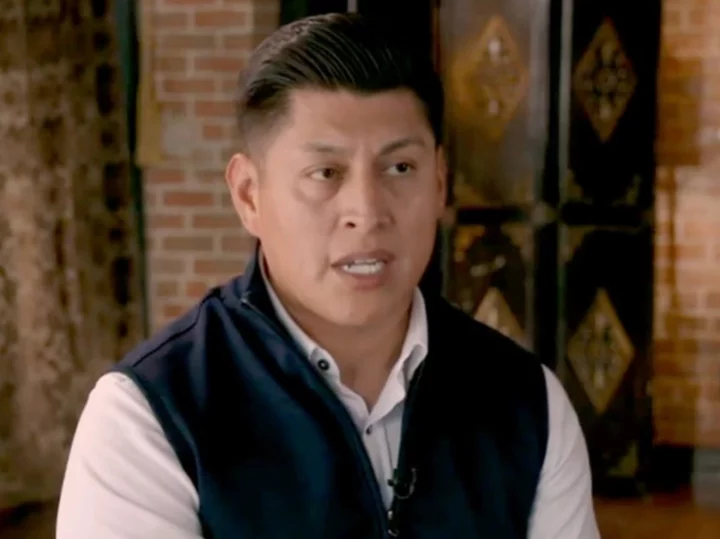
Lone holdout juror in Lori Vallow trial reveals why he changed his mind to convict her: ‘I put a face to evil’
The last juror to vote to convict Lori Vallow guilty of all charges in her trial for the murders of her children and husband’s late wife has spoken out. In an ABC News exclusive interview that aired on Good Morning America on Wednesday, Saul Hernandez, one of the 12 jurors out of a panel of 18 including six alternates, gave his account of their deliberations. Mr Hernandez was the lone holdout on the panel before ultimately switching his stance on day two of deliberations to find Vallow guilty of all charges. On Friday 12 May, Vallow was found guilty of first-degree murder, conspiracy and grand theft over the deaths of her daughter Tylee Ryan, 16, son Joshua “JJ” Vallow, seven, and of conspiracy to murder Tammy Daybell, 49, her new husband Chad Daybell’s first wife, at Ada County Courthouse in Boise, Idaho. Tylee and JJ were last seen in September 2019. In June 2020, their remains were found buried in shallow graves on the Daybell property. Tammy died one month after their disappearance in October 2019 and her death was later ruled a homicide by asphyxiation. Over six weeks, prosecutors argued that Vallow conspired with Mr Daybell and her brother Alex Cox to kill the three victims, motivated by greed and their doomsday cult beliefs. Asked why he had initially held out on convicting Vallow, Mr Hernandez says: “I just didn’t feel like at that timeline with Tylee [Vallow] we were quite there yet, and if we were, I perhaps was missing it.” Speaking about the bizarre religious beliefs that appear to have partially underpinned the motive for the murders, he said of Vallow: “I think she started with maybe curiosity, exploring what her initial beliefs were. And once Chad came into the picture, she went along with it.” Chilling Mr Hernandez said: “As the case progressed, as the evidence came to light, testimony was shared, it was harder to look at her. Growing up, we’re taught good and bad, God and evil, and I think for the first time in my life, I put a face to evil.” More follows… Read More Chad Daybell, Alex Cox and Charles Vallow: Key players in the Lori Vallow trial Lori Vallow Daybell: Timeline of ‘doomsday cult mom’s’ mystery case Lori Vallow has been convicted of her children’s murders. What happens next?
1970-01-01 08:00
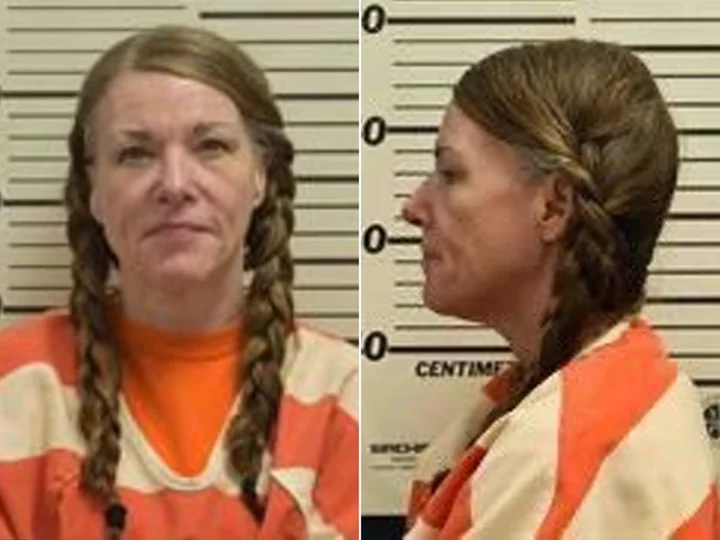
Lori Vallow verdict – latest: Idaho juror speaks out as ‘cult mom’ indicted in Arizona murder conspiracy
“Doomsday cult mom” Lori Vallow has been indicted by a grand jury in Maricopa County, Arizona, for conspiracy to commit the murder of Brandon Boudreaux more than a year ago. The development comes just days after Vallow, 49, was found guilty of first-degree murder, conspiracy and grand theft over the deaths of her daughter Tylee Ryan, 16, son Joshua “JJ” Vallow, seven, and of conspiracy to murder Tammy Daybell, 49, her new husband Chad Daybell’s first wife, at Ada County Courthouse in Boise, Idaho. Tylee and JJ were last seen in September 2019. In June 2020, their remains were found buried in shallow graves on the Daybell property. Tammy died one month after their disappearance in October 2019. Over six weeks, prosecutors argued that Vallow conspired with Mr Daybell and her brother Alex Cox to kill the three victims, motivated by greed and their doomsday cult beliefs. On Friday 12 May, jurors convicted her on all charges. She will be sentenced within 90 days’ time, where she faces life in prison. Judge Steven Boyce has now ordered a pre-sentence investigation to look into Vallow’s background including prior criminal record, social history, health, education and employment records. Read More Lori Vallow has been convicted of her children’s murders. What happens next? Lori Vallow’s indictment over Brandon Boudreaux murder conspiracy revealed days after Idaho conviction Lori Vallow had two alleged accomplices in her children’s murders. One will never face justice Who is Lori Vallow? Mom-of-three, beauty queen – and now convicted killer
1970-01-01 08:00
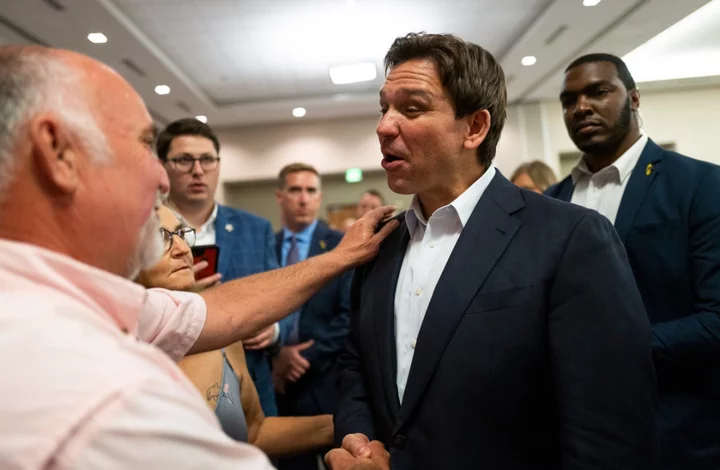
Students at Florida college targeted by Ron DeSantis will hold alternative graduation ceremony
Students of the New College of Florida have planned to host an alternative graduation ceremony to oppose what they said was the “hostile takeover” of the institution through conservative trustees appointed by Ron DeSantis earlier this year. The graduation, which will be separate from the official ceremony, is being organised by New College seniors, with support from the alumni-run Novo Collegian Alliance, which has a little more than $105,000 of the $130,000 funding goal for the ceremony through their GoFundMe page. Called “[New] Commencement: On Our Terms”, the event “is an alternative commencement and grad celebration led by students, for students, and against the hostile takeover of New College of Florida”, according to the GoFundMe page. Governor DeSantis appointed six new members to the Board of Trustees in January, leading to backlash from students who opposed the views of the conservatives. The tapping of Scott Atlas as the speaker for the graduation ceremony on Friday also became a flashpoint between students and the administration. A controversial figure, Dr Atlas served as top adviser to Donald Trump during the Covid-19 pandemic and often provided views contradictory to medical professionals. The board, however, hailed his resume as “impressive” while announcing him as the speaker at the commencement ceremony. “Dr Atlas’s perspective and resume are impressive; he is a champion and fighter for free speech and a renowned national leader,” said Richard Corcoran, the school’s president, in a statement. “We are happy to welcome him here at New College, where we place a high value on personal freedom and individual autonomy, as Dr Atlas does.” In their alternative commencement ceremony, scheduled for Thursday, the students invited Maya Wiley, an attorney and CEO of the Leadership Conference on Civil and Human Rights, as the keynote speaker. The event will be followed by a private gathering on 19 May at an undisclosed location, reported the Sarasota Herald-Tribune. “We’re now guaranteed a graduation surrounded by the New College community members that truly want to celebrate who we are, rather than those attempting to change our culture,” Madison Markham, a graduating senior and one of the students planning the event, was quoted as saying by Politico. According to the outlet, while the students opposed the changes brought by Mr DeSantis, they were unable to have a significant impact on them. The moves by the board included the removal of school’s president Patricia Okker, and replacing her with Mr Corcoran, a former Republican House Speaker, who earns $699,000 annually, more than double his predecessor, as per the Sarasota Herald-Tribune. At least five faculty members have been denied tenure, prompting one of the trustees to quit the board and resign as a professor from the university, reported Politico. “The new administration that has spent the past four months attacking our students and community cannot, in good faith, celebrate our graduating students and their accomplishments,” said the GoFundMe page. “Commencement is supposed to be a celebration of graduating students and the people who have shaped this school to be what it is. And we’re proud of who we are! So, we’re taking the celebration plans into our own hands,” it said. “We want this event to be a fulfilling and memorable experience for graduating students that keeps the focus on STUDENTS, rather than an administration desperately trying to maintain normality and instill conformity.” Read More DeSantis criticizes Trump for implying Florida abortion ban is 'too harsh' Florida teacher under investigation for showing Disney movie with LGBT+ character speaks out How Republicans and right-wing media turned Jordan Neely’s killer into a hero US seeks dismissal of corruption charges against Florida 2018 Democratic governor nominee Gillum Trump and DeSantis to court Iowa voters at duelling events today
1970-01-01 08:00

Former French President Sarkozy loses appeal on corruption conviction; prison sentence upheld
A French appeals court on Wednesday upheld a one-year prison sentence for former President Nicolas Sarkozy on a conviction for corruption and influence peddling. His lawyer said he will take the case to France’s highest court and insisted that Sarkozy is innocent. The 68-year-old ex-president would not have to serve time until a final ruling, and if definitively convicted, he could ask to serve his sentence at home. Sarkozy, 68, was convicted in 2021 of trying to bribe a magistrate in exchange for information about a legal case in which he was implicated. It was the first time in modern French history that a former president had been convicted of corruption and sentenced to prison. Sarkozy, who was president from 2007 to 2012, denies wrongdoing and appealed the original ruling. The Paris appeals court on Wednesday upheld the conviction and the sentence, according to a court official. His lawyer, Jacqueline Laffont, called the decision “stupefying” and “unjust.” Sarkozy is entitled to ask to be detained at home with an electronic bracelet, standard practice for sentences of two years or less. He also received a two-year suspended sentence, which he will not have to serve if he commits no new offense in the next five years. It is one of multiple legal cases Sarkoky has faced. He was convicted later in 2021 of illegal campaign financing of his unsuccessful 2012 re-election bid. Last week, prosecutors asked for him to be sent to trial on charges that he took millions in illegal financing for his 2007 campaign by the regime of late Libyan leader Moammar Gadhafi. Read More Ukraine war’s heaviest fight rages in east - follow live Charity boss speaks out over ‘traumatic’ encounter with royal aide
1970-01-01 08:00

Ex-Apple engineer charged with stealing company’s self-driving car technology
A former Apple engineer who fled to China five years ago has been charged with stealing the company’s self-driving car technology. The US Justice Department charged Weibao Wang, 35, for stealing large troves of data from Apple, including trade secrets and technology related to autonomous systems that are used to design self-driving cars. Mr Wang was charged with six counts of theft or attempted theft of trade secrets, according to a press release issued by the department. “Innovation is alive and well in Silicon Valley – indeed, throughout the Northern District of California,” said US attorney Ismail J Ramsey. “Unfortunately, there will always be some who cheat the system by stealing and profiting from the fruits of others’ labour. The Wang prosecution is but one example. We are pleased that the Disruptive Technology Task Force renews energy and focus on securing innovation for those who actually create it.” The former Apple engineer was a resident of Mountain View in California and began working with the tech giant in 2016. He had signed a confidentiality agreement for the project for which he was working on, and very few people at the company knew about it at that time. He began working as staff engineer with the US-based subsidiary of a Chinese company and was working to develop self-driving cars, the indictment said. The company was identified only as “Company One” in the indictment. Mr Wang was also accused of waiting for more than four months before telling Apple that he was resigning, after he signed a new employment agreement with “Company One”. After the last day of his employment at Apple, on 16 April 2018, Apple’s officials found in their logs that he had accessed large troves of confidential data in the final days of his stint at the tech giant. His Mountain View home was searched on 27 June 2018. Law enforcement agents discovered “large quantities of data taken from Apple prior to his departure” during the search, for which Mr Wang was present. After telling the agents that he had no plans to travel, he purchased a one-way ticket to Guangzhou, China, and boarded a flight that same night. In a press conference, Mr Ramsey said Mr Wang remained in China and he could face 10 years in jail, if extradited and convicted. This is the third incident of a former Apple employee being charged for stealing of documents for China. Two other Apple employees have previously been charged in similar cases involving theft of trade secrets, reported the BBC. Read More Elon Musk calls working from home ‘morally wrong’ How many more rapists and killers are in Met? Police force ‘institutionally racist, misogynistic and homophobic’ says damning report The Independent backs calls for jailed media tycoon Jimmy Lai to be released
1970-01-01 08:00

Trump news – live: Giuliani accused of pardon scheme as Trump rages at Russia probe after Durham report
Donald Trump has lashed out what he described as “cockroaches” in Washington, DC, following the release of the Durham report. The 300-page report – from an investigation led by Trump-appointed special counsel John Durham – railed against the FBI for opening a probe into alleged ties between Mr Trump’s 2016 presidential campaign and the Russian government. “THEY ARE SCUM, LIKE COCKROACHES ALL OVER WASHINGTON, D.C.,” the former president frothed on Truth Social in response to the findings. Meanwhile, Mr Trump’s name has cropped up in a bombshell $10m lawsuit brought against Rudy Giuliani, the ex-New York City mayor and his former personal attorney. Mr Giuliani’s former aide Noelle Dunphy is suing him over sexual harassment that she alleges took place between 2019 and 2021 while she worked for him as a business development manager and public relations consultant. Mr Giuliani has strongly denied the claims. In the lawsuit, Ms Dunphy also claims that she was told that her employer and then-president Mr Trump were offering to sell presidential pardons for $2m apiece. She further claims that she was forced to give Mr Giuliani oral sex while he was on speakerphone to Mr Trump. Read More Trump slams ‘cockroaches’ in DC following release of Durham report DeSantis criticizes Trump for implying Florida abortion ban is 'too harsh' Wounded man who invaded Senate with knife sentenced to prison for Capitol riot Yes, creeps like Trump and the allegations against Giuliani really, really matter Durham report takeaways: a 'seriously flawed' Russia investigation and its lasting impact on the FBI
1970-01-01 08:00
